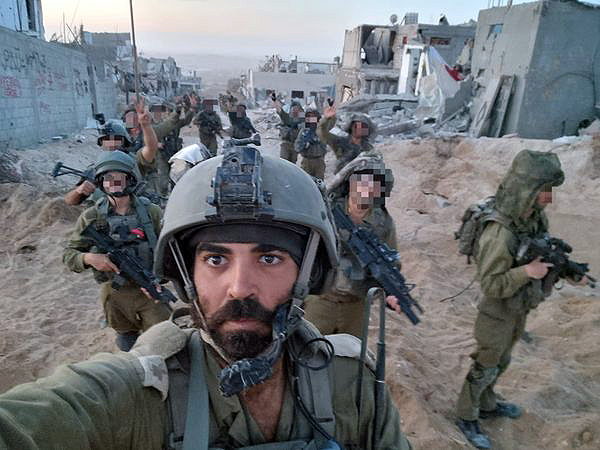“It had been 40 days since I joined the fight. 40 days in which the strength of our people and the support of the homefront gave us the drive to conduct our most important mission: protect our homes and bring our people home.”
These words were written by Maj. (Res.) Daniel Widerker, commander of Company C of the 749th Engineering Battalion and PhD student in the Faculty of Mechanical Engineering. Widerker, who led his company in the fighting in Gaza, was notified during the fighting that his paper had been accepted by the prestigious Advanced Materials Technologies Magazine, after he had sent his latest corrections from Gaza made using an ancient method – pen on paper. He sent the corrected paper to his advisors, Prof. Moran Berkovici from the Faculty of Mechanical Engineering and Prof. Govind Kaigala from the University of British Columbia. In his letter to both of them, he wrote, “Your support over the years, and especially during these crazy times, has not only given me strength in my professional career but also gives me comfort and peace of mind.”
Widerker specializes in microflow. In his latest paper, he describes a new method for micron-scale three-dimensional printing of different metals that combine into one structure. Widerker is also part of the development team for creating optics under microgravity conditions. A parabolic flight experiment that he was leading to test polymerization under microgravity conditions was postponed due to the war.
In his letter, he also wrote, “The symbolism of the holiday is now clearer than ever because we’ve come to ‘banish the darkness.’ A big thank you to the Faculty of Mechanical Engineering in particular and to the entire Technion in general for their support and such a clear position regarding the importance of this mission. Thank you for your sensitivity and for your help to the students who are now fighting on the front lines and will return to labs and school.”
Photo: Daniel Widerker with the engineering company under his command in Gaza







